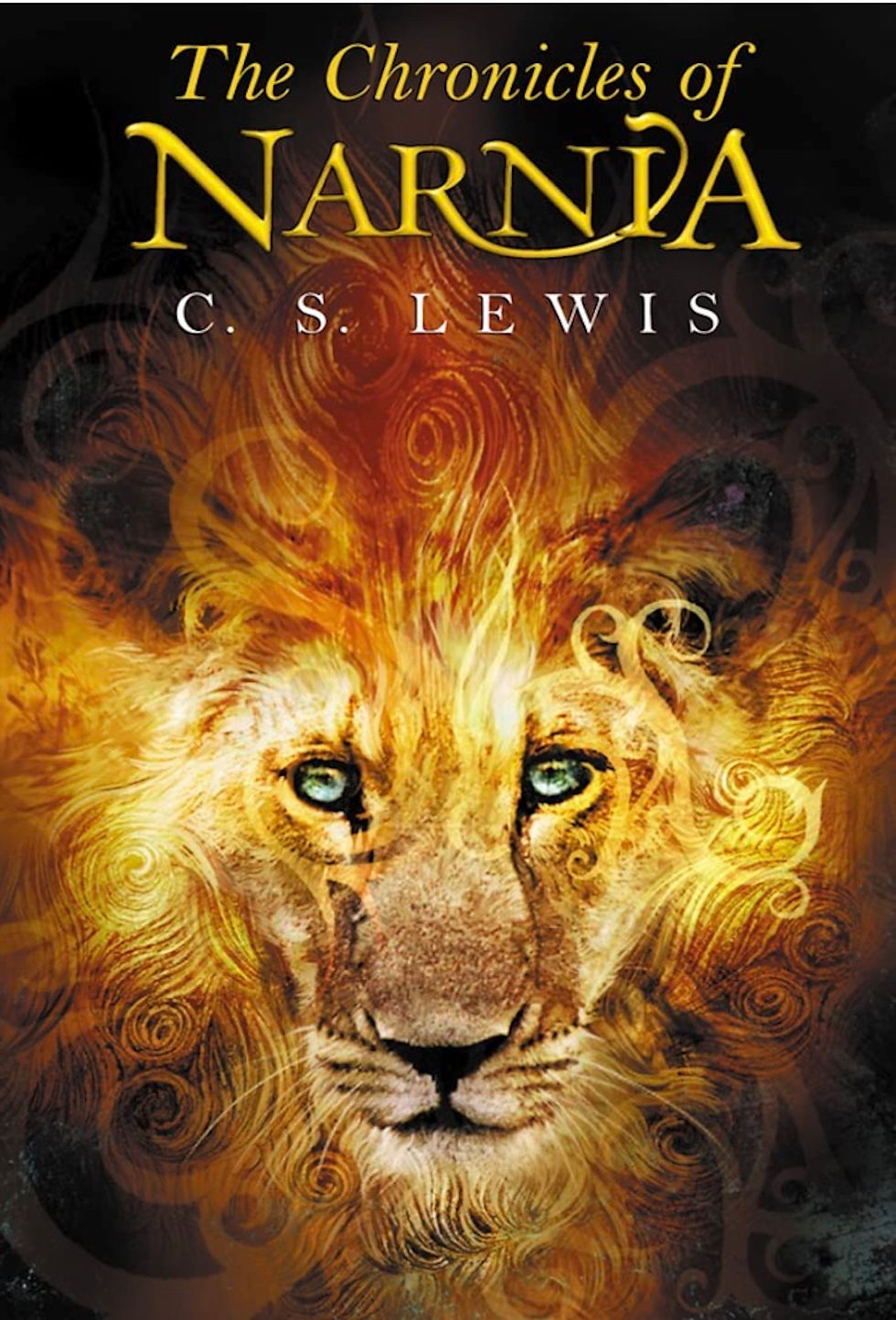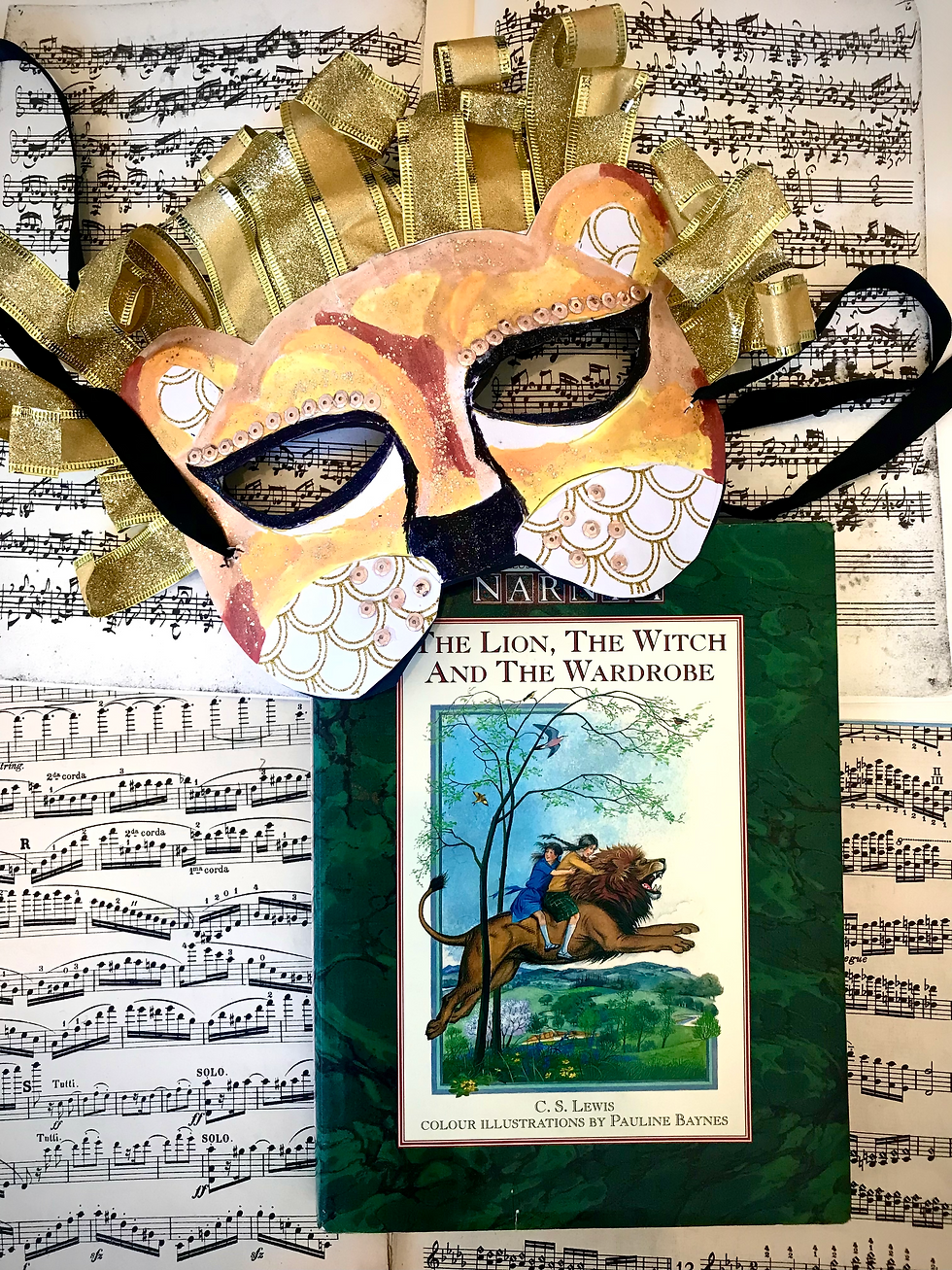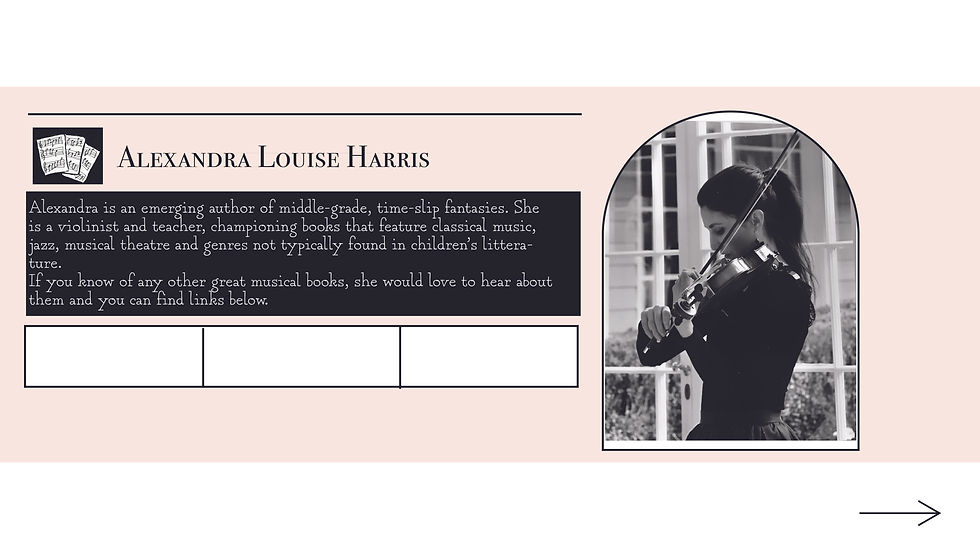The Lion the Witch and the Wardrobe
- Alexandra Louise Harris

- Nov 20, 2023
- 4 min read
Updated: Mar 3, 2024
Goodness. What is there to say about a book such as this? When I was growing up, I loved Narnia, so much so that in reading it again, I felt like I’d been there yesterday.

Which made me ponder…why was it captured so vividly in my imagination? I haven’t read it in over thirty years, and I don’t remember seeing any movies recently? Of course, we watched The Chronicles of Narnia television series a few times, but that wasn’t the image I had in my mind. Then I realised it was the illustrations. I must have really studied them and pictured them as I read and I see now, that when I received the book for my tenth birthday, they made the story come alive.
By the way, I just had to show you a picture of the birthday message, written in my favourite gold ink, and the sticker. How cool is that? And it’s musical too!
Anyway, back to the book. I’m sure you have read it too, so hopefully there won’t be too many spoilers, but reading it again, I noticed many things. For one, the dedication;
‘My dear Lucy,
I wrote this story for you, but when I began if I had not realized that girls grow quicker than books. As a result you are already too old for fairy tales, and by the time it is printed and bound you will be older still. But someday you will be old enough to start reading fairy tales again. You can then take it down from some upper shelf, dust it, and tell me what you think of it. I shall probably be too deaf to hear, and too old to understand a word you say, but I shall still be your affectionate Godfather.’
C.S. Lewis.
How cute is that? I’m sure Lucy did read The Lion, The Witch and the Wardrobe repeatedly, and I discovered she was a dance and music teacher! However, as her health deteriorated from multiple sclerosis, she sought refuge in Narnia and identified more with Lucy. ‘What I could not do for myself, the dedication did for me,’ she said. ‘My Godfather gave me a greater gift than I had imagined.’ You can read more about her here.
However, one sentence stuck with me. ‘Someday you will be old enough to start reading fairy tales again.’ Of course, you know I read all kinds of things, but there is something different about fairytales. I know what you’re thinking. Narnia is more fantasy than fairytale, but I wonder if it was the former? C.S Lewis was a professor of Medieval and Renaissance Literature at Cambridge, so I think he would have known if he was writing a fairytale.
So what is a fairytale? I’ve gone with the Cambridge dictionary definition on this one for obvious reasons. It says a fairytale is ‘a traditional story written for children that usually involves imaginary creatures and magic.’
In that sense, this is a fairytale, and according to this checklist of the elements needed in a fairytale, this certainly has them. The moral lesson, an evil character, magical characters and events, heros and heroines, overcoming evil and, of course, a happy ending.
That sentence also made me wonder if C.S. Lewis knew something about human nature? Is there a point in our adult lives when we long to retreat into fantastical worlds… or perhaps the worlds of our childhood? Is it like a midlife crisis? Well, it’s a lot cheaper than buying a red Ferrari, that’s for sure.
Anyway, I had a couple of other surprises when reading it again. For instance, I hadn’t noticed the omniscient narrator before, another element which makes this very fairytale. Of course, I couldn’t help noticing the music either. There’s a harp in the old fancy house with the wardrobe, but sadly no one plays it, and when Lucy first meets Mr Tumnus, she is serenaded by his flute made of straw for almost an hour! Then there’s the Sound of Music. Whoops, I mean the sound of music.
‘There were Tree-Women there and Well-Women (Dryads and Naiads as they used to be called in our world) who had stringed instruments; it was they who made the music.’
From the illustration, these look to be lyres.
Of course, there is evil music too, played by the White Witch’s army. Then we hear the music of the sea people, sounding ‘stranger, sweeter and more piercing’ than any music before.
Now, before I move on to discuss some of my favourite parts, I just thought you’d like to know that the Violetta orchestra is welcoming new members. Mr Tumnus on the straw flute, the lyre-playing tree and well women, and a chorus of sea people.
Of course, there were many other wonderful things about this story. The part when Aslan enters the story is still my favourite, and apart from one small jolting moment when Lucy is told ‘battles are ugly when women fight’, the battle stakes are surprisingly high. Perhaps this is another reason the story stayed with me for such a long time? I think I was pretty terrified and so devastated by what they did to Aslan!
What I love most about these stories is the idea that we can slip into another world or time while no one notices. That concept has certainly inspired Violetta’s travels. Lucy, Edmond, Susan and Peter even grow so old in Narnia they forget what a lamppost is! Of course, they make it back home again, but what an adventure! Certainly something that would change your outlook on life forever and imagine going through all of that when you are ten?

Well, that’s kind of the point of fairytales, isn’t it? Like Lucy, we love our siblings and would do anything for them, even if they betray us. When people make mistakes and are truly sorry, we forgive them. Although we feel like being sick as Peter does when forced to be brave, we learn that courage is about being scared and doing it, anyway. And most of all, we can believe there’s a way to overcome anything. No matter how difficult things may seem, on the other side we can hope for a happier ending…
And it never hurts to see sinister White Witches getting their just desserts.
#Narnia, #C.S.Lewis, #thelionthewitchandthewardrobe, #fairytales #middlegradebooks, #middlegrademusicalbooks, #violettabookseries,



Comments